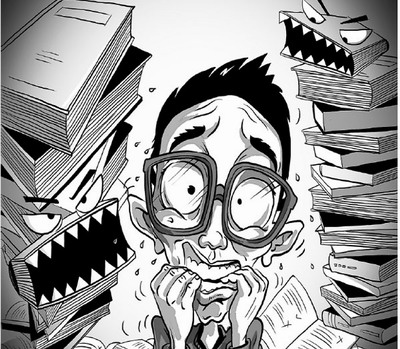Flunking gaokao not end of the world
By Colin Speakman (China Daily) Updated: 2014-06-03 07:36

It's that time of the year again, when about 9 million students will take the gaokao (college entrance examination) seeking the scores that will get them about 7 million undergraduate seats in universities. This is not a contest where all can be winners. Irrespective of how good the students are, about 2 million of them will not be able to enroll in a university. That adds to the huge pressure on the students to get the highest possible marks and get into a university of their choice.
Higher education is an important ladder to social and economic mobility in China, and for children of poorer parents it may be seen as their only chance. Many parents invest money in extra tuition for their children, who are under tremendous pressure not to disappoint their families. Failure, for them, is not an option.
It is thus not surprising that a recent report by the 21st Century Education Research Institute and the Social Sciences Academic Press identified links between examination pressure and suicides of students in China. At all levels, right through to the entry into a university, the scores obtained by students in exams under time constraints dominate their assessment.
It is well recognized that such exams can result in poor performances for some students compared with their abilities and school records. There are many reasons for that: lack of sleep from worry and/or last minute cramming before exams, uncontrollable nerves, ill-health, misreading questions in panic, blanking out - the list can go on.
The Western education system recognizes the importance of continuous assessment as a contributor to overall grades with exams playing a vital but not necessarily the most vital part. It is normal for students in the United Kingdom to go to graduate school based on undergraduate degree performance, without taking an entrance exam. To get into a university, there are alternative study routes from exam-focused "A" levels to national diplomas that contain a lot of coursework in the final results.
Another factor is how the country's education system presents the link between school leaving exams and future options. Most Western countries look at this as measuring what the students achieved in school, for example, the American High School Diploma, not a university entrance exam.











